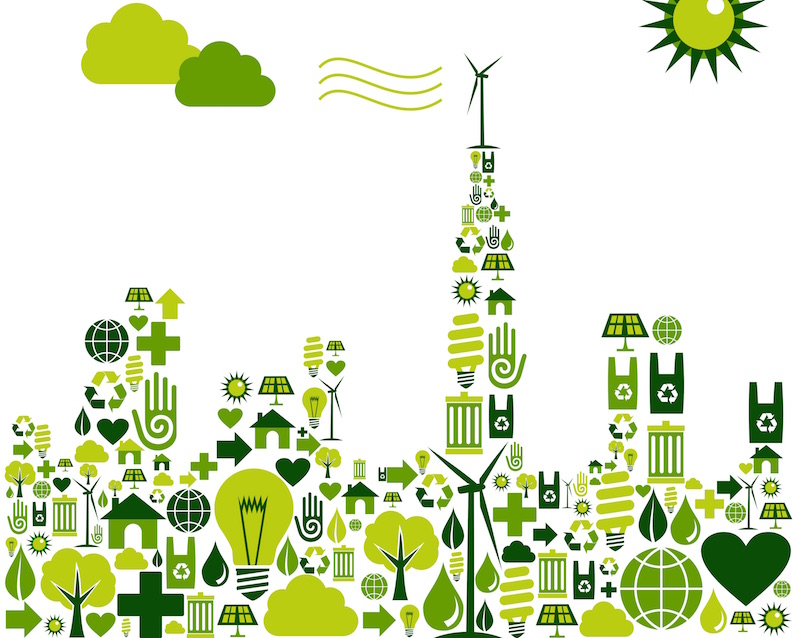“The 19th century was a century of empires, the 20th century was a century of nation states and the 21st century will be a century of cities” – Wellington Webb, Former Mayor of Denver, CO.
The 21st century model of urban development will leverage information and communication technologies (ICTs) to set cities on a development trajectory characterised by environmental sustainability, resilience, and equitable social and economic growth, according to a new initiative led by two United Nations bodies.

The International Telecommunications Union (ITU) and the United Nations Economic Commission for Europe http://www.unece.org/ (UNECE) have launched a global initiative to advocate for public policy to use ICT in transitioning to smart sustainable cities - The United for Smart Sustainable Cities (U4SSC) initiative.
“ICTs have become central to innovation in almost every sphere of social and economic activity, making collaboration essential in maximising the contribution of ICTs to sustainable development”, said ITU Secretary-General Houlin Zhao.
The mission of the U4SSC is split into three pillars, the first ‘Connecting Cities and Communities’, focuses on advocacy, leadership and stakeholder engagement. U4SSC will aid and encourage cities to identify and categorise relevant stakeholders to define and foster their roles in the development of a smart sustainable city.
Pillar two ‘Setting the Framework’ revolves around establishing policy, regulation, standards and key performance indicators (KPIs). It aims to enable regulation for smart cities in order to incentivise investment in projects, encourage technology integration, smart collaboration across thematic borders, compliance with international standards, as well as develop a monitoring and review process for smart city progress.
“We live in a connected world and we see new fascinating markets and products where physical products and services and digital technologies merge and move together”, said ECE Executive Secretary Christian Friis Bach.
“The digital revolution can help us create intelligent transport, smart energy systems, resource efficiency and transparent and open societies. It can help us create sustainable development. However, to achieve this we need trust and predictability, and we need common and neutral standards that can work across borders and technologies”, he added.
Pillar two also includes the ‘United Smart Cities’ project across 56 selected countries in Europe, Asia and the Americas. By applying KPIs more intensively in the chosen cities the project will create smart sustainable city profiles and action plans in order to identify highest priorities and provide recommendations for action.
ITU and ECE presented a set of KPIs they developed to measure the “smartness” and “sustainability” of cities, at the ITU-ECE Forum in Rome on May 18-19th. Dubai, Singapore, Manizales, Montevideo, Buenos Aires, Valencia, Rimini and other selected cities have already agreed to trial these key performance indicators.
The forum concluded with the Rome Declaration, which presents a 10-point manifesto for the transition to smart sustainable cities. The declaration promotes the use of internationally agreed KPIs and technical standards in service of sustainable development objectives within an urban context, and highlights the value of inclusive e-governance models and peer-learning among city leaders.
Pillar three ‘Enhancing Smart Governance’, believes that local governments should engage with the private sector and citizens by developing innovative financing mechanisms and sustainable business models for smart city development. The planning of smart sustainable cities should integrate strategies for job creation to attract new businesses and establish a circular economy, the report reads.
“Smart sustainable cities benefit from improved energy efficiency, reduced environmental pollution, increased social inclusion, and offer businesses a better return on investment, and people a happier and healthier environment in which to live", said ITU Deputy Secretary-General Malcolm Johnson.
The third pillar will also focus on health, safety and convenience for citizens in smart cities. It also believes that smart communities make smart cities and aims to encourage the evolution of the smart city from the bottom-up rather than top-down. “It is essential that people are at the heart of urban solutions and sufficiently empowered, motivated and engaged to drive the development of ICT-enabled smart sustainable cities”, U4SSC states.
In a sector still searching for the best path forward, guidance and a centralised approach to standards may yield beneficial results. However the natural course of the market is still playing out and such initiatives should embrace that natural process as well as the “living organism” of the city. “Smart sustainable cities is a journey. Not a final destination”, said Nasser Al Marzouqi, Chairman, ITU-UNECE Advisory Board for SSC.
[contact-form-7 id="3204" title="memoori-newsletter"]



